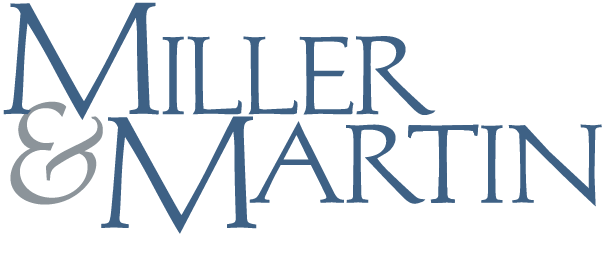New Law Relaxes Restrictions on Hiring Individuals with Criminal Records in the Banking and Finance Industry
Miller & Martin PLLC Alerts | February 14, 2023
Authors: David Kesler | Erin Steelman
On December 23, 2022, President Biden signed into law a bill pertaining to financial institutions which relaxes restrictions on hiring individuals with criminal records.
Section 5705 of the 2023 National Defense Authorization Act (“2023 NDAA”), which is titled the “Fair Hiring in Banking Act,” amends (i) Section 19 of the Federal Deposit Insurance Act, 12 U.S.C. § 1239 (“Section 19”) and (ii) Section 205(d) of the Federal Credit Union Act, 12 U.S.C. § 1785(d) (“Section 205(d)”) to expand some of the exceptions regarding the employment of individuals with criminal records.
Section 19 and Section 205(d) describe the circumstances under which an individual may be employed by a federally insured depository institution or credit union, respectively. These Sections prohibit such institutions from employing individuals who have been convicted of a crime involving dishonesty, breach of trust, or money laundering, or those who have agreed to enter pretrial diversion or a similar program in connection with such an offense. If a financial institution wants to employ such persons, it must obtain prior written consent to do so from the Federal Deposit Insurance Corporation (FDIC) or the National Credit Union Administration (NCUA). Section 19 and Section 205(d) require financial institutions to perform a “reasonable inquiry” into an applicant’s criminal history to avoid hiring someone with a covered conviction without obtaining this consent.
Before the passage of the 2023 NDAA, Sections 19 and 205(d) created a lifetime ban on employment with an FDIC-insured depository institution or an NCUA-insured credit union without the prior written consent of the applicable regulatory authority referenced above. The Fair Hiring in Banking Act provisions of the 2023 NDAA narrow the scope of the crimes which are subject to Sections 19 and 205(d) and the circumstances under which this consent is required.
Specifically, pursuant to the Fair Hiring in Banking Act, an individual no longer needs the consent of the FDIC or the NCUA to become employed with an insured financial institution for “Certain Older Offenses” under any of the following circumstances:
- Seven (7) years or more have passed since the individual committed the offense; or
- The individual was incarcerated with respect to the offense, and five (5) years or more have passed since the individual was released from incarceration; or
- The individual committed the offense when they were 21 years of age or younger, and more than 30 months have passed since the sentencing for the offense occurred.
These exceptions do not apply to individuals who have been convicted, or who have entered a pretrial diversion program for, “any of the enumerated offenses” [1] subject to a “minimum 10-year prohibition” under Sections 19 and 205(d).
Moreover, the Fair Hiring in Banking provisions allow the FDIC and NCUA to exclude other de minimis offenses by rulemaking, subject to the following three (3) requirements:
- The de minimis offense “was punishable by a term of three (3) years or less confined in a correctional facility.”
- Any de minimis exception with respect to offenses for writing insufficient-fund checks requires that the aggregate total face value of all insufficient-fund checks is $2,000 or less (regardless of the number of convictions and/or pretrial diversion programs). and
- The FDIC and NCUA may designate exemptions for other lesser offenses (including the use of a fake ID, shoplifting, trespassing, fare evasion, and driving with an expired license or tag) if at least one (1) year has passed since the conviction and/or pretrial program for such offense.
These requirements triple the current period of imprisonment qualifying for a de minimis offense (from one (1) year or less to three (3) years or less), double the aggregate total face value of insufficient-funds checks across convictions or pretrial programs (from $1,000 to $2,000), and reduce the required passed time period for certain “lesser offenses” to only one (1) year or more. Since the FDIC and NCUA have broad discretion to issue new rules in this area, the full scope/impact of these new de minimis offense exceptions remains to be seen.
Additionally, as a general matter, the Fair Hiring in Banking Act provides that the prohibitions in Sections 19 and 205(d) do not apply when a covered offense has been expunged, sealed, or dismissed. If there is “an order of expungement, sealing, or dismissal” that has been issued with regard to a covered offense, and either the language of the order or the legislative provisions governing the order indicate an intent that the conviction be destroyed or sealed from the individual’s federal, state, or other record, then the prohibitions on employment are not applicable.
Finally, the Fair Hiring in Banking Act describes the process for obtaining the prior written consent referenced above from the FDIC and NCUA, as well as the standards these agencies must apply in considering such requests. The FDIC and NCUA must conduct an “individualized assessment” when reviewing such requests, considering “evidence of rehabilitation, the applicant’s age at the time of the conviction or program entry, the time that has elapsed since the conviction or program entry, and the relationship of the individual’s offense to the responsibilities of the applicable position.” These agencies also must consider other “individualized” factors, including the individual’s employment history, letters of recommendation, completion of substance abuse, job preparation, or educational programs, and other relevant mitigating information.
The Fair Hiring in Banking Act currently is in effect and will be implemented by the FDIC and NCUA this year. Thus, as a practical matter, federally insured financial institutions can no longer rely upon Section 19 or Section 205(d) to provide the grounds to automatically disqualify applicants who have been convicted of certain offenses. These institutions will need to adjust their hiring practices with respect to applicants with criminal records accordingly and stay up to date on additional rules and other guidance issued by the FDIC and NCUA pertaining to these processes.
We Can Help
Please feel free to contact Erin Steelman, David Kesler, or any other member of our Labor & Employment Law Practice Group with other questions regarding the Fair Hiring in Banking Act.
[1] These “enumerated offenses” include receipt of commissions or gifts for procuring loans; theft, embezzlement, or misapplication by a bank officer or employee; filing or making false/misleading bank entries, reports, and transactions; filing or making false/misleading federal credit institution entries, reports, and transactions; concealment of assets from conservator, receiver, or liquidating agent of a financial institution; bank fraud; obstructing examination of a financial institution; laundering of monetary instruments; engaging in monetary transactions in property derived from specified unlawful activity; frauds and swindles; and fraud by wire, radio, or television.

